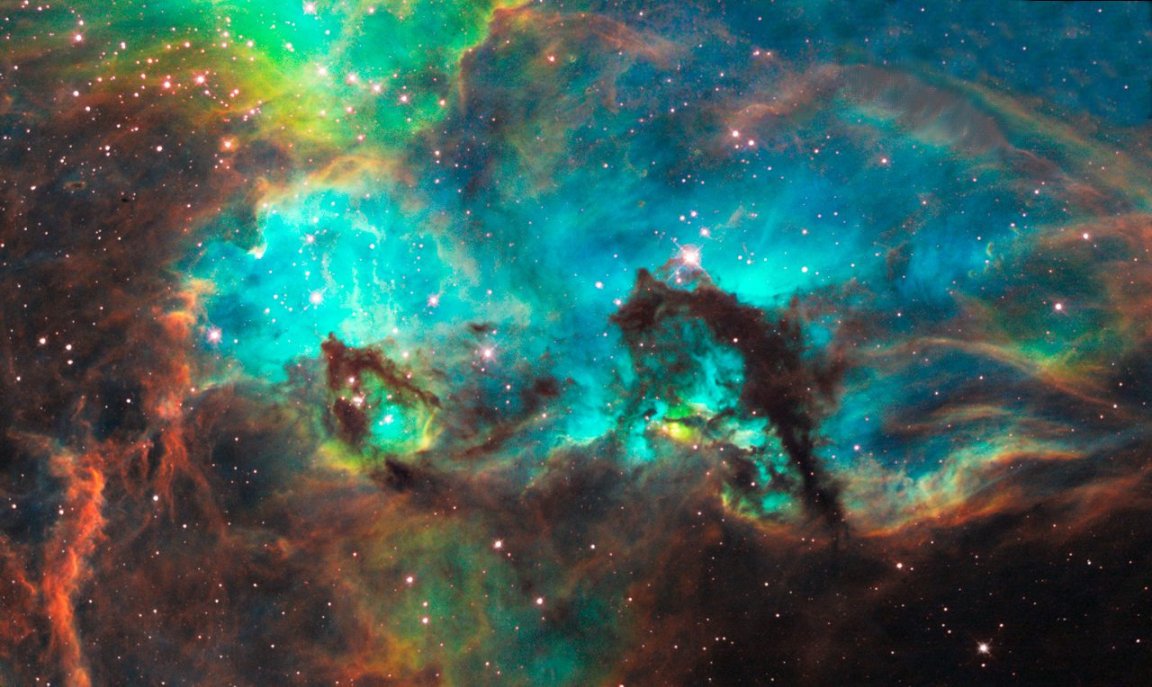

You can probably imagine an early universe without planets or stars — but what did the universe look like before time existed? This fall, you could find out by taking a free class led by prominent researchers at the University of Copenhagen. The course, available on Coursera, attempts to cover the entire history of the universe — from its first moments to current cosmological time.
Astronomy is like the most comprehensive history lesson you can take: no matter what you do for a living, learning about the origins of the universe will change your perspective on the world as you know it. Check out these online courses taught by researchers at schools like MIT, Cornell and CalTech for a glimpse into our cosmological past. While they cover topics ranging from astronomy to astrophysics to dark matter, nearly all of these courses are suitable for beginners.
Life on Earth:
1. Planet Earth: “Planet Earth” is about, well, just that. Students will study what makes our planet unique: the formation and evolution of the Earth, plate tectonic structure, how geological processes like earthquakes occur, and more.
Level: Beginner
2. Origins — Formation of the Universe, Solar System, Earth and Life : In this course, researchers from Denmark will explore the early universe, before stars, planets, galaxies, or even time existed. Focus is given to the birth of our planet and how it has evolved since.
Level: Beginner | Duration: 8 weeks
Introductory Astronomy:
3. Astronomy – State of the Art: This highly-rated course, taught by instructors from Steward Observatory at the University of Arizona, covers everything a beginner needs to know about astronomy and the universe — from telescopes to the unity of life.
Level: Beginner | Duration: 23 hours
4. Intro to Astronomy: This courses taught from Duke University claims students will study “quite literally, everything in the universe.” Tall order, but if this course can pull it off, that would be quite something.
Level: Beginner | Duration: 15 weeks |Read Reviews
5. Astronomy: Discovering the Universe: In answering questions about the Big Bang and black holes, this course will walk you through the many ways that civilization has tried to make sense of the universe and how our understanding has evolved over time.
Level: Beginner | Duration: 4 weeks | Read Reviews
6. Confronting The Big Questions: Highlights from Modern Astronomy: This course starts by going over planets, stars and galaxies, and ends with an overview of cosmology — or, “the history of the Universe as a whole.”
Level: Beginner | Read Reviews
7. Cosmology and Astronomy: Stars, Black Holes and Galaxies:This course focuses on stars: how they are formed, what happens to them over time, and how they form galaxies. Also discussed: black holes.
Level: Beginner | Duration: 2 hours 40 min.
Astrophysics and Intermediate Astronomy:
8. Relativity and Astrophysics: Challenging common sense notions of space and time, this course from Cornell University explores Einstein’s theory of relativity and illuminates aspects challenging aspects about the way our universe operates.
Level: Beginner | Duration: 8 weeks
9. Modern Astrophysics: From the classrooms of MIT, this course uses Newtonian physics and quantum mechanics to analyze how stars and other celestial bodies are formed and interact with each other.
Level: Beginner | Duration: Self-paced
10. Galaxies and Cosmology: In this intermediate course from the California Institute of Technology, students will focus on the extra-galactic — that is, they’ll go beyond our Milky Way galaxy to understand the composition and properties of the Universe as a whole.
Level: Intermediate | Duration: 9 weeks |Read Reviews
11. The Evolving Universe: This other course from CalTech may be introductory, but it covers a lot: from the fundamentals about the origins of the Universe and our Planet Earth, to the expansion of the universe, dark matter, dark energy and other cosmic phenomena.
Level: Beginner | Duration: 10 weeks
Dark Energy and Dark Matter:
12. The Discovery of the Higgs Boson: Physicists from the University of Edinburgh explore the newest discovery in the world of particles: the Higgs Boson. Combining physics, astronomy and cosmology, the professors aim to provide “a new description of the universe.”
Level: Beginner | Duration: 7 weeks
13. From the Big Bang to Dark Energy: This course presents “startling discoveries” that attempt to answer the question of how matter was created in the Big Bang, and its mysterious relationship with anti-matter.
Level: Beginner | Duration: 4 weeks | Read Reviews
Astrobiology and The Search for Other Life:
14. Astrobiology and The Search For Extraterrestial Life: The first MOOC to explore the age-old question: “Is there life on other planets?” Combining fields of study like biology, chemistry and geosciences, this course asks if the evolution of life is an “inevitable” and “common” process throughout our cosmos. Highly rated by our users!
Level: Beginner | Duration: 5 weeks | Read Reviews
15. Alien Worlds: The Science of Exoplanet Discovery and Exploration: How do we know planets exist outside our solar system? How can we observe them? This course provides an overview of the techniques used to detect these planets, and how researchers determine their size, mass and atmosphere.
Level: Beginner | Duration: Self-paced
16. Imagining Other Earths: This course takes an in-depth look at the history of the Earth and what conditions gave rise to life, in an attempt to answer the question of which extrasolar planets could, too.
Level: Beginner | Duration: 16 weeks
Provided by Frida Garza at mysliderule.